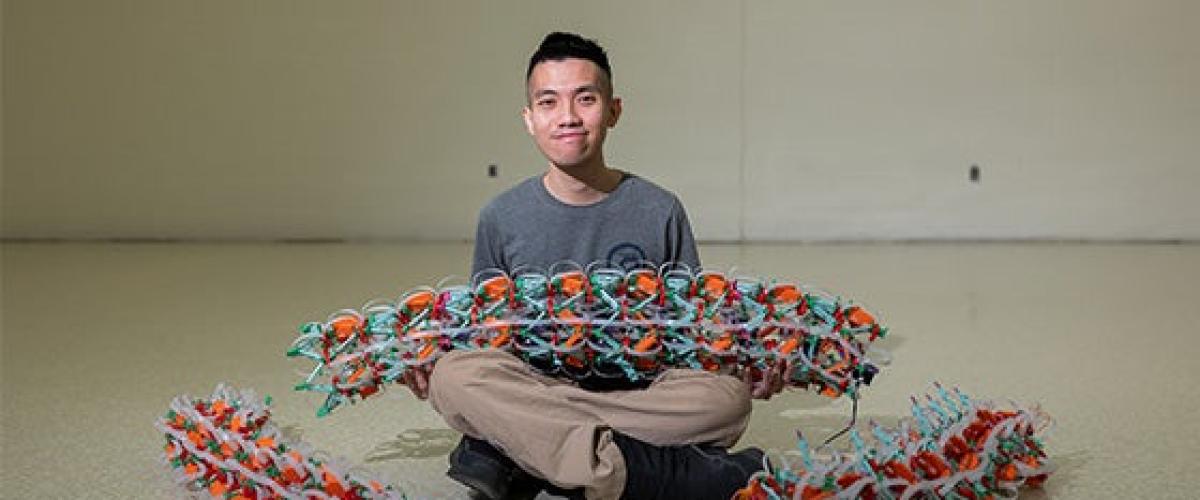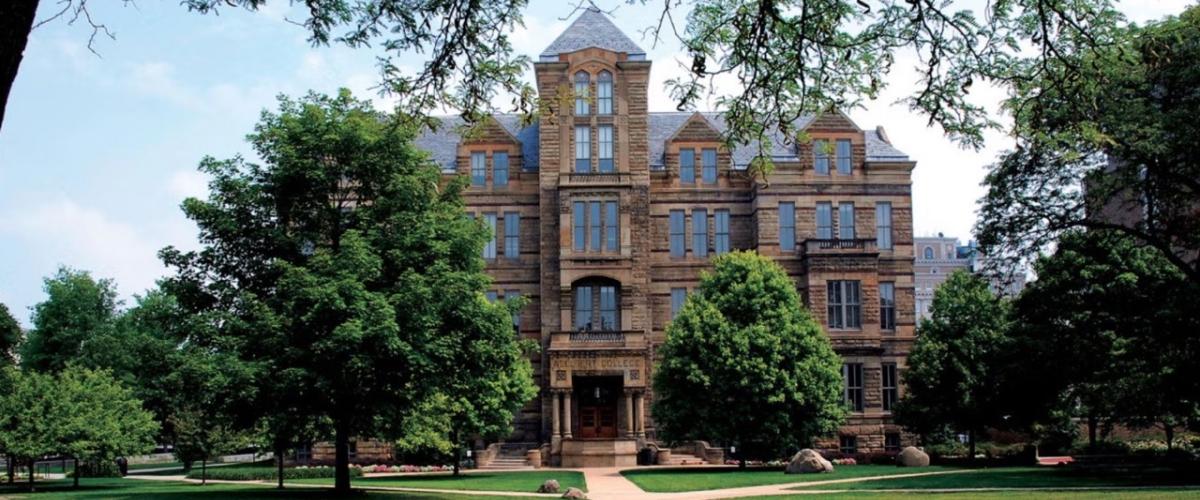
- The amount of data collected is going to grow exponentially;
- Cybersecurity efforts will have to keep pace; and
- Economic opportunities are enormous.
- “Smart Building” Sensors and Networks: These can be homes, office buildings or factories, where sensors can measure everything from energy and ventilation and adjust settings based on usage standards and outdoor temperatures. Just last year, Assistant Professor Philip Feng and Loparo received a $750,000 “incubator” grant from the U.S. Department of Energy to test some of their newest concepts. These include a device that can harvest energy from vibrations within and outside a building—for example, people moving or cars passing by—for its power. The professors are partnering with Intwine Connect LLC, a Chagrin Falls company now with offices on campus.
- Advanced Manufacturing: Since 2014, Case Western Reserve has been actively engaged in the building of the National Network of Manufacturing Institutes, a federal initiative designed to encourage development of promising new areas within the manufacturing sector. Case Western Reserve has worked with partners in higher education and other sectors on such topics as flexible electronics, lightweight materials, direct-digital manufacturing, smart manufacturing and additive manufacturing. Including networked sensors in these efforts would provide data during the processes involved in making these new kinds of materials and products. Through this feedback, manufacturers can quickly adjust their operations to improve energy efficiency, reliability and product quality, and also minimize costs.
- Energy: This summer, Case Western Reserve is collaborating with a handful of companies and utilities on a $6.3 million federally funded demonstration project that focuses on ways to strengthen the nation’s electrical grid. Working at three sites—including one on campus—the team will test ways to integrate solar power and solar forecasting with more efficient system control and power load management. As part of the effort, researchers will use “smart” devices to assess and enhance the entire system’s performance. The award is part of the U.S. Department of Energy’s SHINES (Sustainable and Holistic Integration of Energy Storage and Solar PV) program.
- Cybersecurity: Case Western Reserve is one of four founding members of the Northeast Ohio CyberConsortium, an organization launched last fall to increase collaboration among private, public and nonprofit organizations in identifying and neutralizing online threats. With the support of a National Science Foundation grant, faculty at the engineering school and Cleveland State University have collaborated on the development of a curriculum that teaches undergraduates the fundamentals of hardware and software security. Students participate in several experiments to gain firsthand knowledge about security threats and solutions. In the final project, student teams try to infiltrate the hardware and software of other team projects to learn how to protect systems more effectively. ISSACS will build on this work to identify additional ways that higher education can work with regional partners to strengthen the security of the devices and networks that compromise the Internet of Things.




